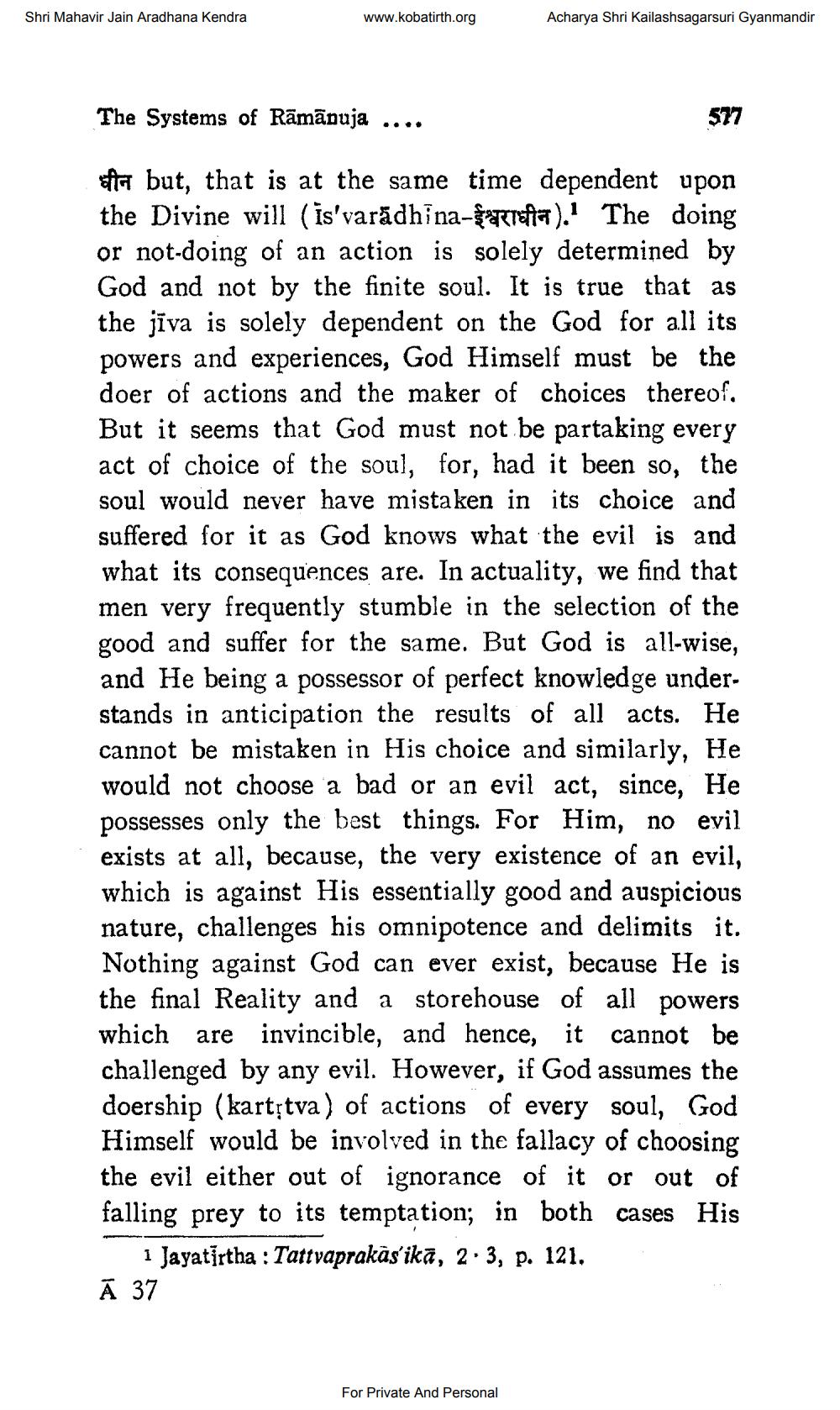________________
Shri Mahavir Jain Aradhana Kendra
www.kobatirth.org
Acharya Shri Kailashsagarsuri Gyanmandir
The Systems of Rāmāpuja ....
577
softar but, that is at the same time dependent upon the Divine will (is'varādhina-farrafa).' The doing or not-doing of an action is solely determined by God and not by the finite soul. It is true that as the jīva is solely dependent on the God for all its powers and experiences, God Himself must be the doer of actions and the maker of choices thereof, But it seems that God must not be partaking every act of choice of the soul, for, had it been so, the soul would never have mistaken in its choice and suffered for it as God knows what the evil is and what its consequences are. In actuality, we find that men very frequently stumble in the selection of the good and suffer for the same. But God is all-wise, and He being a possessor of perfect knowledge understands in anticipation the results of all acts. He cannot be mistaken in His choice and similarly, He would not choose a bad or an evil act, since, He possesses only the best things. For Him, no evil exists at all, because, the very existence of an evil, which is against His essentially good and auspicious nature, challenges his omnipotence and delimits it. Nothing against God can ever exist, because He is the final Reality and a storehouse of all powers which are invincible, and hence, it cannot be challenged by any evil. However, if God assumes the doership (kartýtva) of actions of every soul, God Himself would be involved in the fallacy of choosing the evil either out of ignorance of it or out of falling prey to its temptation; in both cases His
1 Jayatirtha : Tattvaprakās'ika, 2.3, p. 121. Ā 37
For Private And Personal




